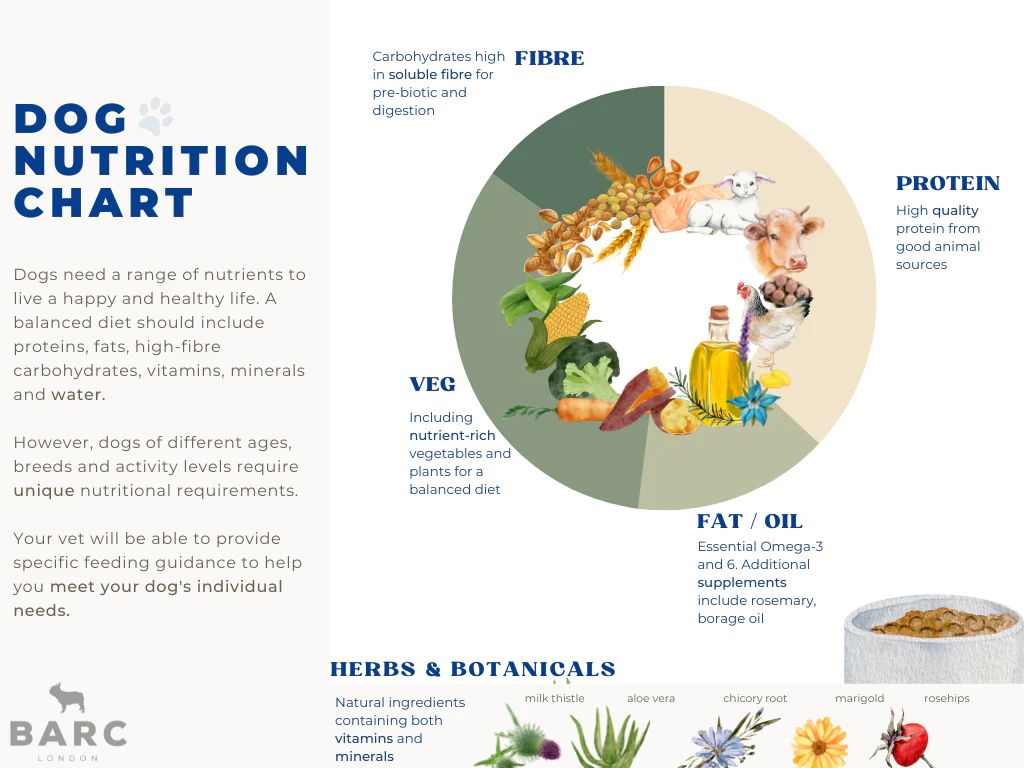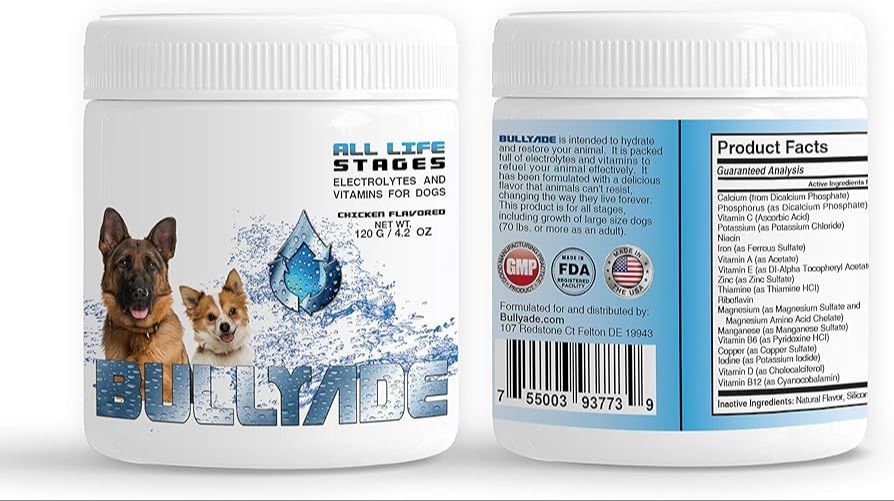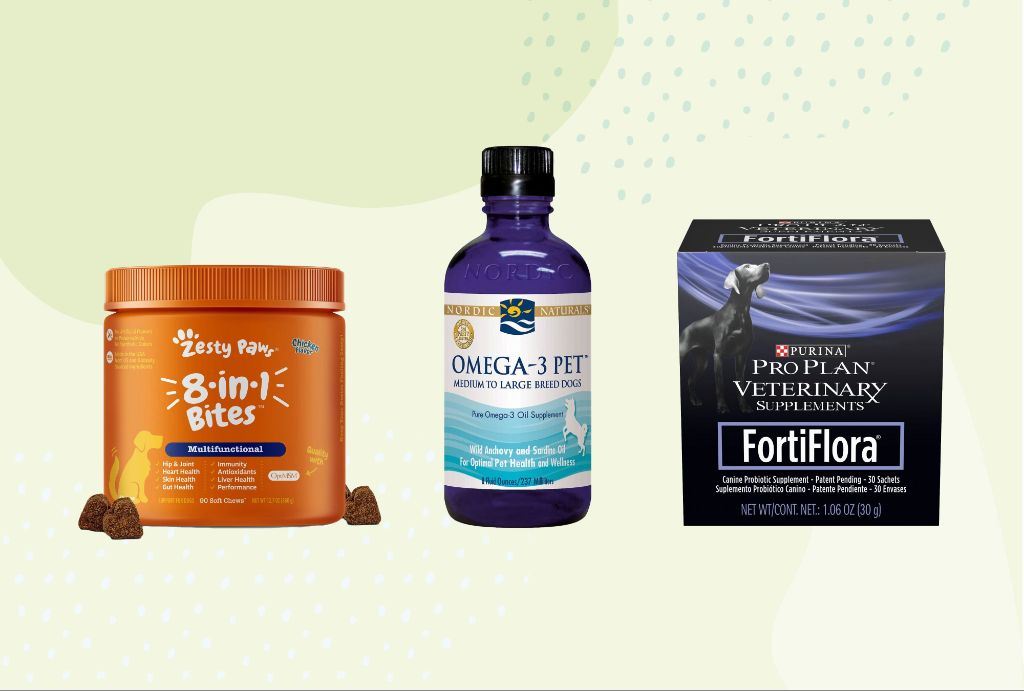Introduction
Giving your dog vitamins and supplements can provide important health benefits. Like humans, dogs require certain vitamins and minerals to stay healthy. While most commercial dog foods contain added vitamins and minerals, supplementing with additional vitamins can help promote optimal health and well-being in dogs.
This article will provide dog owners with guidance on the best times to give vitamins to dogs. We’ll cover puppies, adult dogs, senior dogs, pregnant/lactating dogs, active/working dogs, and dogs with health conditions. Proper vitamin supplementation for dogs depends on factors like age, activity level, and health status. Understanding when and how to give your dog vitamins can help ensure they are getting the right nutrients at each life stage.
Background on Dog Vitamins
Dogs require certain vitamins and minerals as part of a complete and balanced diet to support healthy metabolic functions, growth, and development (AKC). Some vitamins that dogs need include:
– Vitamin A for healthy vision, immune function, growth, and skin health (AKC)
– B Vitamins like thiamine, riboflavin, and vitamin B12 for energy metabolism and nerve transmission (AKC)
– Vitamin C for collagen production, immune health, and antioxidant protection (The Wildest)
– Vitamin D for bone health and calcium absorption (Carefirst Animal Hospital)
– Vitamin E as an antioxidant to prevent cell damage (The Wildest)
Common vitamin formulations for dogs include multivitamin tablets or chews with a blend of essential vitamins and minerals. Specific supplements may also be given for pregnant/lactating dogs, puppies, seniors, or dogs with certain health conditions per a veterinarian’s recommendation (AKC).
When to Give Vitamins
The timing of when to give your dog vitamins depends on the specific vitamin or supplement. Here are some general guidelines on when to administer vitamins for optimal absorption and efficacy:
Fat-soluble vitamins like vitamin A, D, E and K are best given with food, as fat helps with their absorption. According to Dr. Pol, giving fat-soluble vitamins with a meal that contains some fat can increase absorption by up to 400% (When should I give my dog a multivitamin?).

Water-soluble vitamins like vitamin C and B complexes are best given on an empty stomach at least 2 hours before or after a meal. This allows for quick absorption directly into the bloodstream without competing for absorption with food (The Best Time To Give Your Dog Supplements).
For nutritional supplements like glucosamine, chondroitin, probiotics or fish oil, it’s recommended to give them in between meals for optimal absorption. Giving supplements with food can decrease absorption rates.
In general, follow the manufacturer’s instructions for timing and dosage of specific vitamin and mineral supplements. Giving vitamins at the same time every day establishes a consistent routine and maximizes benefits.
Puppies
Puppies have special vitamin needs because they are growing so rapidly in the first year of life. According to the AKC, puppies need higher levels of some vitamins for proper development [1]. This includes vitamins A, B complex, C, D, E and K. Vitamin supplements designed specifically for puppies will contain appropriate levels of these vitamins.
Some key vitamins for puppy development include:
– Vitamin A for vision, bone growth, reproduction and immune system health. Puppies need 5 times more vitamin A per pound than adult dogs.
– B vitamins for metabolism, cell growth, and the nervous system. These support a puppy’s rapid growth.
– Vitamin D for bone development and calcium absorption. This is crucial during the first year when bones are growing quickly.
– Vitamin E as an antioxidant to build a healthy immune system.
Puppies also need higher levels of minerals like calcium, phosphorus, zinc, copper, iron and iodine compared to adult dogs. High quality puppy vitamins and supplements will contain balanced amounts of vitamins and minerals [2].

Giving puppies a vitamin supplement supports healthy development and prevents nutritional deficiencies during this critical growth stage. Check with your veterinarian for the right puppy vitamin regimen.
Adult Dogs
Most adult dogs benefit from taking a daily multivitamin supplement to support overall health and prevent disease. According to the AKC, some key vitamins for adult dogs include vitamin C, vitamin E, and B complex vitamins. Vitamin C supports immune function and antioxidant activity. Vitamin E also has antioxidant effects to reduce cellular damage. The B vitamins help convert food into energy and maintain healthy skin and muscle tone.
Some specific vitamins to consider for adult dog maintenance:
- Vitamin A for eye and skin health.
- Vitamin D for bone, joint, and calcium metabolism.
- Vitamin E for circulatory and cognitive health.
- B vitamins for metabolism, digestion, and nerve function.
Multivitamins tailored for adult dogs, such as Chewy Adult Dog Vitamins, provide complete vitamin coverage appropriate for daily maintenance. Check with your veterinarian for any special vitamin needs based on your dog’s age, size, and health status.
Senior Dogs
Senior dogs have different nutritional needs compared to younger dogs. As dogs age, their metabolism slows down and their ability to absorb nutrients decreases. Providing vitamins to senior dogs helps support their aging bodies and maintain good health in their golden years.
Some of the most important vitamins for senior dogs include antioxidants, vitamin B complex, vitamin C, vitamin E, and vitamin D. Antioxidants like vitamin C and E help fight free radicals that can damage cells. B vitamins help maintain energy levels in older dogs. Vitamin D promotes bone, muscle, nerve, and immune system health. These vitamins support senior dogs’ cardiovascular function, brain health, vision, joints, skin and coat.

It’s generally recommended to start supplementing senior dogs around 7 years old with a broad-spectrum multivitamin formulated specifically for senior canines. Senior dog vitamins often contain higher potencies of certain ingredients compared to regular adult dog vitamins. Working with your veterinarian to choose the right senior dog vitamin supplement ensures your dog’s needs are met as they go through the aging process.
Pregnant/Lactating Dogs
Pregnancy and nursing place extra demands on a dog’s body, so vitamins can help support them during this important time. According to the Amazon listing for Tomlyn Prenatal Dog Vitamins, pregnant dogs need extra vitamins A, D, E, and K as these support development and nutrition for puppies. The B vitamins are also crucial during pregnancy, especially folic acid, as it helps prevent neurological defects in puppies (Amazon).
Additionally, pregnant and nursing dogs need more calcium, phosphorus, and iron to support their growing puppies. Iodine is essential for proper thyroid function and helps produce milk. Omega fatty acids from fish oil support healthy skin and brain development for puppies. Probiotics also help boost immunity during this vulnerable time (Pooch and Mutt).
It’s best to consult with your veterinarian, but most recommend starting prenatal vitamins just before breeding or as soon as pregnancy is detected. Prenatal vitamins for dogs contain all the essential vitamins and minerals needed during pregnancy and nursing. High quality prenatal supplements made specifically for dogs provide optimal nutrition without overdoing certain nutrients. They often contain extras like probiotics, fatty acids, and digestive enzymes as well (Amazon).
Active/Working Dogs
Active and working dogs like hunting dogs, sled dogs, police dogs, etc. have higher vitamin and nutrient requirements than less active pets. Their bodies are under more physical stress and need additional support. According to Chewy, active dogs need more vitamins B, C, and E, as well as higher levels of glucosamine, chondroitin, and omega-3 fatty acids to support joint health. Many dog vitamin supplements designed for active dogs contain these ingredients. For example, Zesty Paws Multivitamin Bites contain vitamin B complex, vitamin C, vitamin E, glucosamine, chondroitin, and omega-3s from salmon oil.

It’s important to choose a high-quality supplement formulated specifically for active dogs rather than just using a regular vitamin. Talk to your vet about the right vitamins, minerals, and joint supplements to keep your hard-working dog energized and healthy.
Dogs With Health Conditions
Certain health conditions and diseases may require additional vitamin supplementation for dogs. Some examples include:
Joint Problems: Dogs with arthritis or joint injuries may benefit from supplements that support cartilage, joint health, and mobility, like glucosamine, chondroitin, and omega-3 fatty acids. These nutrients help reduce inflammation, stiffness, and pain associated with joint issues in dogs (Source).
Digestive Issues: Probiotics and digestive enzymes can help dogs with gastrointestinal problems like inflammatory bowel disease, diarrhea, or malabsorption syndromes. These supplements support gut health and nutrient absorption (Source).
Heart Disease: Antioxidants like vitamin E, selenium, and coenzyme Q10 may benefit dogs with heart conditions. These nutrients reduce oxidative damage to the heart and support normal cardiovascular function (Source).
Cancer: Fish oil rich in omega-3 fatty acids can help dogs undergoing chemotherapy or radiation therapy by reducing inflammation and supporting the immune system. Certain antioxidants may also help limit cell damage in dogs with cancer (Source).
Always consult your veterinarian before giving any supplements to dogs with health conditions, as they can recommend the most appropriate vitamins and dosages.
Conclusion
Proper vitamin supplementation is crucial for maintaining your dog’s health and wellbeing at every stage of life. Puppies require vitamins for proper growth and development. Adult dogs need vitamins to support their normal bodily functions and activity levels. As dogs age into their senior years, vitamins help compensate for reduced nutrient absorption and changing nutritional requirements. Vitamin needs also increase during pregnancy, lactation, and for dogs with certain health conditions.
The key is to choose high-quality dog vitamins and administer them at the right dosages and frequencies based on your dog’s specific needs. Work with your veterinarian to determine an optimal vitamin regimen. Pay attention to any changes in your dog’s health and adjust the vitamins accordingly. With the right vitamin supplementation, you can keep your dog active and healthy for many years to come.
